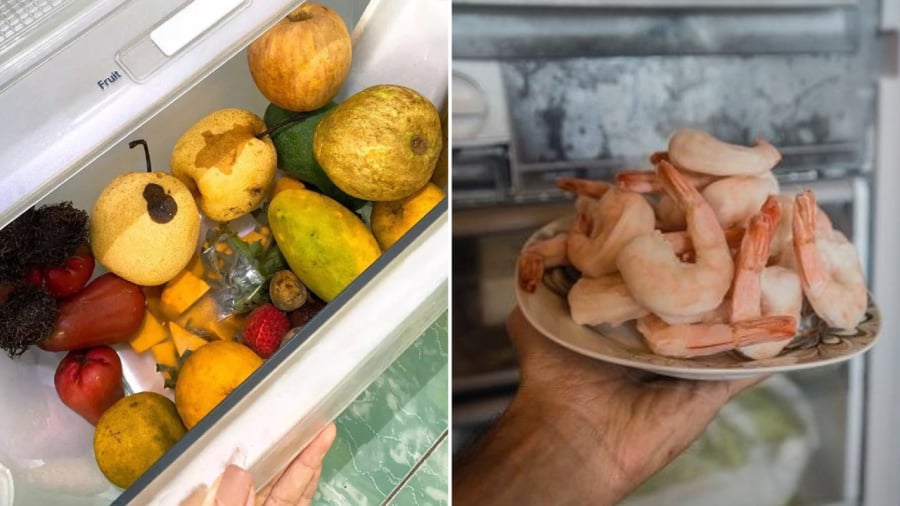Cooked Dishes
Cooked dishes should be consumed as soon as possible. The low-temperature environment in the refrigerator only slows down the growth of bacteria and microorganisms, it does not kill them entirely. Leaving cooked food in the fridge for extended periods can lead to a decline in their nutritional value, especially for green vegetables. Cooked vegetables, when kept for too long, can produce high levels of nitrites, which are harmful to the human body. Nitrites can destroy blood pigments and lead to dangerous symptoms such as oxygen deficiency and dizziness. Over time, nitrites can also cause liver damage and increase the risk of liver disease.
Some cooked foods should not be kept overnight, even in the refrigerator, and should not be reheated. These include green vegetables, seafood, mushrooms, potatoes, and spicy soups…

Cooked dishes, when kept too long in the fridge, undergo a decline in nutritional value and can potentially cause liver damage.
Cooked dishes that are left in the refrigerator for extended periods are prone to spoilage and mold growth. Consuming these dishes can lead to acute food poisoning. Additionally, they may contain aflatoxin, which can cause the growth of liver cancer cells.
Milk and Dairy Products
Dairy products such as fresh milk, yogurt, and cheese are common in our daily lives. They provide essential nutrients like calcium, protein, and phosphorus. However, dairy products are highly perishable and can easily spoil if kept in the refrigerator for too long. For example, fresh milk should be consumed within 24 hours of opening and stored in the refrigerator.
Dairy products are susceptible to bacterial and microbial attacks. These microorganisms break down proteins, fats, and other nutrients, altering the product and producing harmful toxins. When consumed, these toxins can affect not only the digestive system but also the liver.
Before consuming dairy products, pay attention to the storage time and thoroughly inspect the products for any abnormalities to avoid consuming spoiled items.
Fruits
Fruits are often stored in the refrigerator to maintain their freshness. However, keeping fruits in the fridge for too long is not advisable. They can still spoil and produce toxic substances, particularly affecting the stomach and liver. Fruits continue to produce ethylene gas even when stored in the refrigerator, causing them to ripen and rot faster. When fruits spoil, they can produce toxins, including aflatoxin, which is highly toxic to the liver.

Fruits and seafood, when stored for prolonged periods in the refrigerator, can undergo qualitative changes and become harmful to consumers.
Seafood
Seafood is highly nutritious, especially rich in protein. However, when stored for extended periods in the refrigerator, seafood can produce high levels of histamine, which can cause damage to the nervous system and cardiovascular system. In severe cases, it may even lead to acute poisoning. Histamine can also irritate the liver, and its long-term consumption can result in serious liver diseases.
When consuming seafood, it is advisable to opt for fresh produce and aim to consume it as soon as possible. Cooked seafood should be eaten promptly, and leftovers should be avoided, even when stored in the refrigerator.





































